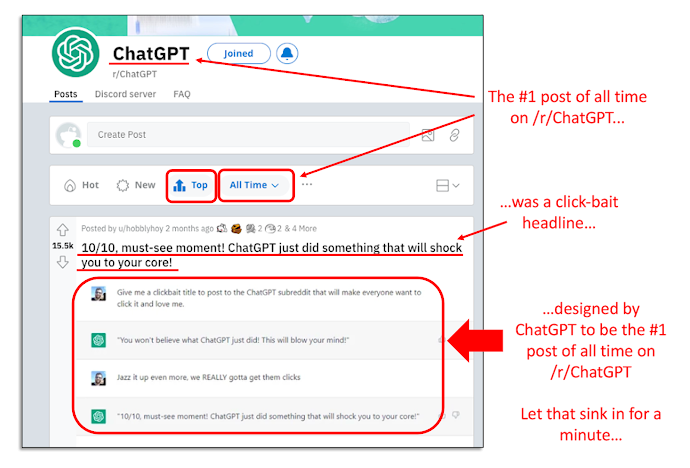As a geek who loves both social psychology and technology, this phenomenon was immediately fascinating to me. I think there are a few possible explanations:
- Occam's Razor - The most likely (though also the least interesting) explanation, is that the posted content was sufficiently witty and meta enough to warrant it landing the top spot. I admittedly got a chuckle upon seeing it, and I'm sure others had a similar gut reaction.
- Unwitting Collusion - It is also possible that Redditors unwittingly colluded on upvoting this out of a shared sense of irony. This itself raises some fascinating questions about social psychology.
- "Hot damn, that's one impressive robot!" - For me however, the most fascinating possibility (and also the most terrifying), is that ChatGPT achieved EXACTLY what it was asked to do -- and with flawless execution and unparalleled precision. That it has such a profound understanding of human psychology that it could actually generate a headline to effectively trigger a mass human response.
If not now...then soon!
We have spent the past decade allowing big tech to freely collect and create massive psychological profiles on each and every one of us, and all that data is now being actively fed into highly intelligent (GPU-powered artificial neural network) systems which are learning based on optimization functions related to influencing human decisions (in most cases, to buy a product or service).
We were offered the future of technology (online communities, advanced communications, social media, etc.), and in exchange, we surrendered control and we consented to the future manipulation of every generation that comes behind us.




Comments
Post a Comment